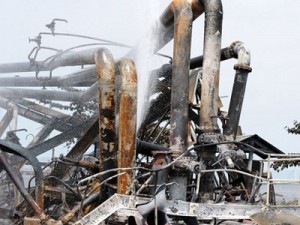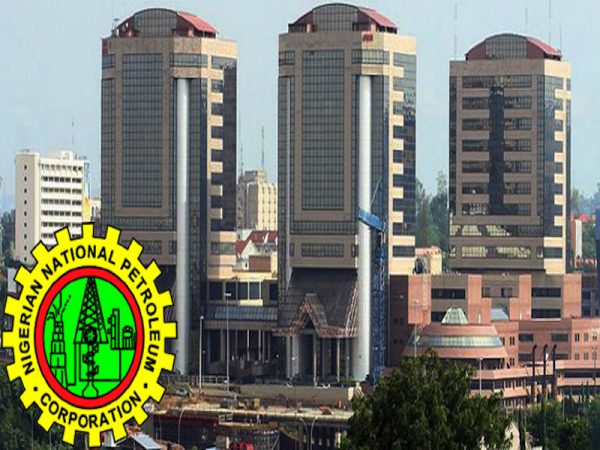Concern Intensifies Over Banks’ Upstream Oil Sector Exposure

Some banking sector analysts have expressed concern over banks’ exposure to the upstream oil and gas sector.
It was gathered that of the top five banks’ $4,882 million exposure to the upstream oil and gas sector, at least 15 per cent is exposed to the Trans Forcados pipeline (TFP).
The pipeline has been closed for four months due to attacks by the Niger Delta Avengers. The TFP links a number of oil fields and oil mining leases (OML) in the western Niger Delta with the Forcados terminal on the coast. Many of these OMLs were once owned by Shell Nigeria but were sold to indigenous Nigerian upstream companies, in many cases financed by Nigerian banks.
To this end, analysts at Lagos-based CSL Stockbrokers Limited, noted that since 15 per cent of upstream oil and gas lending equates to 2.2 per cent of total lending, it raises questions over cost of risk guidance which is generally under 1.5 per cent for 2016. It viewed this as a concentration of Nigerian upstream oil and gas bank risk in the basin served by the TFP.
It listed the banks involved in the deal as FBN Holdings, Zenith Bank, Access Bank, GTBank and the United Bank for Africa Plc.
“For the majority of upstream firms still producing oil, today’s oil price of $48.1/bbl covers operating costs, though not all financing costs. We think there is a strong case for locking in forward prices for 2017,” it added.
Although several upstream oil and gas companies use the TFP, the report was focused on those that publish accounts namely Seplat and Seven Energy.
However, media had reported that other firms that are associated with the TFP are Shell Nigeria; Shoreline Resources; First Hydrocarbon Nigeria; the Nigerian Petroleum Development Company (NPDC); Pillar Oil; Midwestern Oil & Gas; Platform Petroleum; and Energia.
However, the CSL Stockbrokers Limited report showed that Seplat owns 45 per cent of three OMLs in the region served by the TFP: OMLs 4, 38 and 41, and it is the operator of these three blocks in its partnership with the NPDC.
Seplat also has 22.5 per cent in OML 55 and 45.0 per cent in OML 53, neither of which are on the TFP.
Seplat had US dollar loans of $542.8 million outstanding to three major Nigerian banks at the end of 2015, part of the total $863 million it owed in US dollars to Nigerian and international banks. This $542.8 million, according to the report, represents 11.1 per cent of the upstream oil and gas exposure of the top five Nigerian banks.
Furthermore, it revealed that Seven Energy also has interests in the OMLs 4, 38 and 41, even though the ownership of those three producing areas is split between Seplat, with 45 per cent, and the NPDC, with 55 per cent. This is because Seven Energy has a Strategic Alliance Agreement (SAA) through which it provides the NPDC with technical and financial support, receiving oil in return.
“Seven Energy’s principal operation is Accugas, a gas producing and midstream company located on the other (south eastern) side of the Niger Delta, and with no connection to the TFP. We believe that, following recent and renewed attacks that the TFP remains out of operation. As at 31 March 2016, Seven Energy had total borrowings of $842 million,” it stated.
“We think it is reasonable to think that the top five Nigerian banks hold $542.8 million of Seplat’s debt, and they likely hold half of $381.2 million of Seven Energy’s senior debt. We arrive at $733.3 million of debt, 15 per cent of the top five banks’ oil & gas upstream exposure, and 2.1 per cent of total gross loans, depending in some way on the Trans Forcados pipeline.
“The majority of Nigeria’s upstream oil & gas companies are still producing. Though data for May shows that total Nigerian oil production fell to 1.5 million barrels of oil per day (bpd), a government source recently stated that in June production recovered to 1.9mbopd. For companies not contending with operating risk, price risk remains. Today’s price of US$48.2/bbl likely covers operating costs, in most cases.
“But in many cases, in our view, it does not cover debt servicing costs. Many oil companies have had their debt rescheduled, with grace periods for principal and interest introduced for 2016 and 2017. But beyond 2017 lies a period of significant uncertainty, in our view,” it added.
Media recently reported Nigeria was losing about 300,000 barrels of crude oil per day due to the bombing of Forcados pipeline that conveys Forcados grade of crude oil to the over 400,000 barrels per day Forcados Export Terminal, one of the country’s biggest export terminals in the Niger Delta.
The loss, which translates to an average of $12million daily at an oil price of $40 per barrel, arose from the damage caused on the 48-inch underwater pipeline, which disrupted crude oil flows to the export terminal. It was also gathered that the loss may have eroded the gains Nigeria would have derived from the recent rise in oil price.







